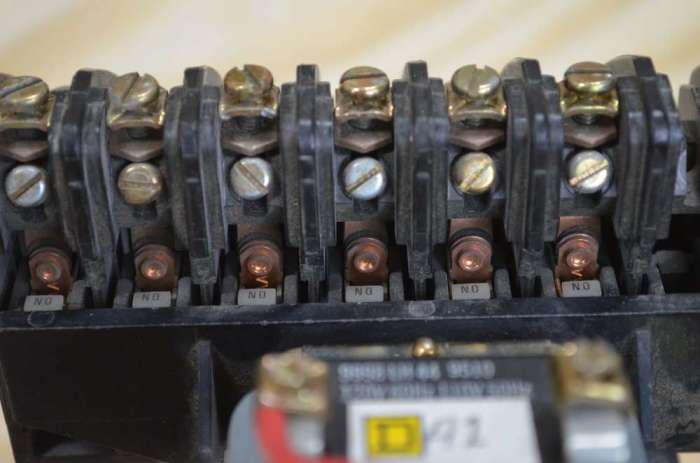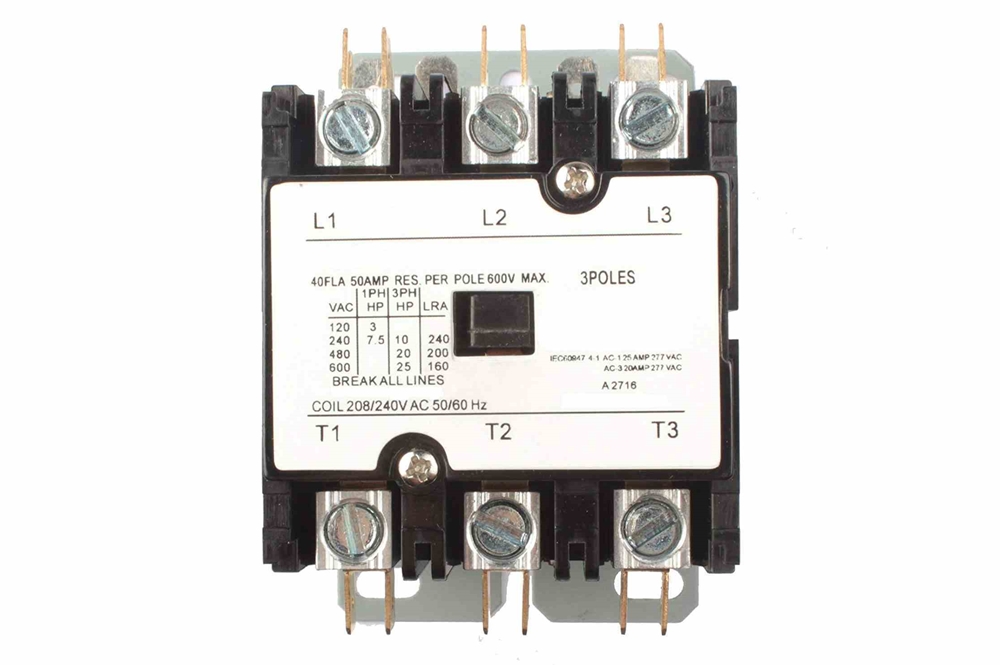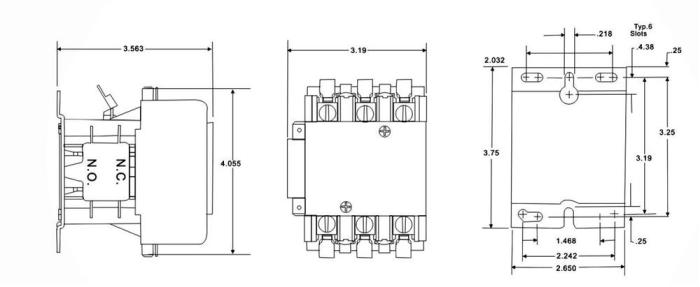Contactors are rated according to the maximum amperage through the contactor, which is a crucial factor in selecting the appropriate contactor for a given application. This article delves into the world of contactor amperage ratings, exploring their purpose, influencing factors, selection process, and more, providing valuable insights for electrical professionals and enthusiasts alike.
Contactors play a vital role in electrical systems, serving as switches that control the flow of electricity. Understanding their amperage ratings is essential to ensure safe and efficient operation.
Contactor Amperage Ratings: Contactors Are Rated According To The Maximum Amperage Through The
Contactor amperage ratings are crucial specifications that determine the maximum current a contactor can safely handle. These ratings are assigned based on various factors, including the contactor’s design, materials, and intended application.
Factors influencing contactor amperage ratings include the contactor’s coil voltage, contact material, and operating environment. The coil voltage determines the amount of current drawn by the contactor’s coil, while the contact material affects the contactor’s ability to conduct current without excessive heating or arcing.
The operating environment, including factors such as temperature and humidity, can also impact the contactor’s amperage rating.
Typical Amperage Ratings, Contactors are rated according to the maximum amperage through the
- Small contactors: 5-25 amps
- Medium contactors: 25-100 amps
- Large contactors: 100-600 amps
Contactor Amperage Selection

Selecting the appropriate contactor amperage rating is critical for ensuring the contactor’s safe and reliable operation. An undersized contactor may overheat or fail prematurely, while an oversized contactor may be unnecessarily expensive and inefficient.
To select the correct contactor amperage rating, follow these steps:
- Determine the load current: Calculate the total current drawn by the load that the contactor will be switching.
- Apply a safety factor: Multiply the load current by a safety factor of 1.25-1.5 to account for potential surges or variations in the load current.
- Select a contactor with an amperage rating equal to or greater than the calculated value.
Contactor Amperage Derating

Contactor amperage ratings may need to be derated under certain operating conditions. Factors that can affect contactor amperage ratings include:
- High ambient temperature
- High altitude
- Frequent switching
Contactor derating involves reducing the contactor’s amperage rating to ensure safe operation under these conditions. The amount of derating required depends on the specific operating conditions and the contactor’s design.
Contactor Amperage Testing

Contactor amperage ratings are typically tested using specialized equipment that measures the current flowing through the contactor’s contacts. Testing is important to verify the contactor’s ability to handle the specified current without overheating or arcing.
Contactor amperage testing should be performed:
- During manufacturing to ensure compliance with specifications
- After installation to verify proper operation
- Periodically throughout the contactor’s lifespan to monitor its performance
Contactor Amperage Standards

Contactor amperage ratings are subject to various standards that ensure their safety and reliability. These standards include:
- IEC 60947-4-1: Contactors and motor-starters – Part 4-1: Contactors
- NEMA ICS 1: Industrial Control and Systems – Contactors
- UL 508: Standard for Industrial Control Equipment
Adhering to these standards ensures that contactors meet minimum safety and performance requirements.
Answers to Common Questions
What are the factors that influence contactor amperage ratings?
Factors include the type of contactor, voltage rating, coil voltage, and ambient temperature.
How do I select the appropriate contactor amperage rating?
Determine the load current and consider factors such as derating and future expansion.
What is contactor derating?
Derating involves reducing the contactor’s rated amperage to account for factors such as high ambient temperatures or frequent switching.